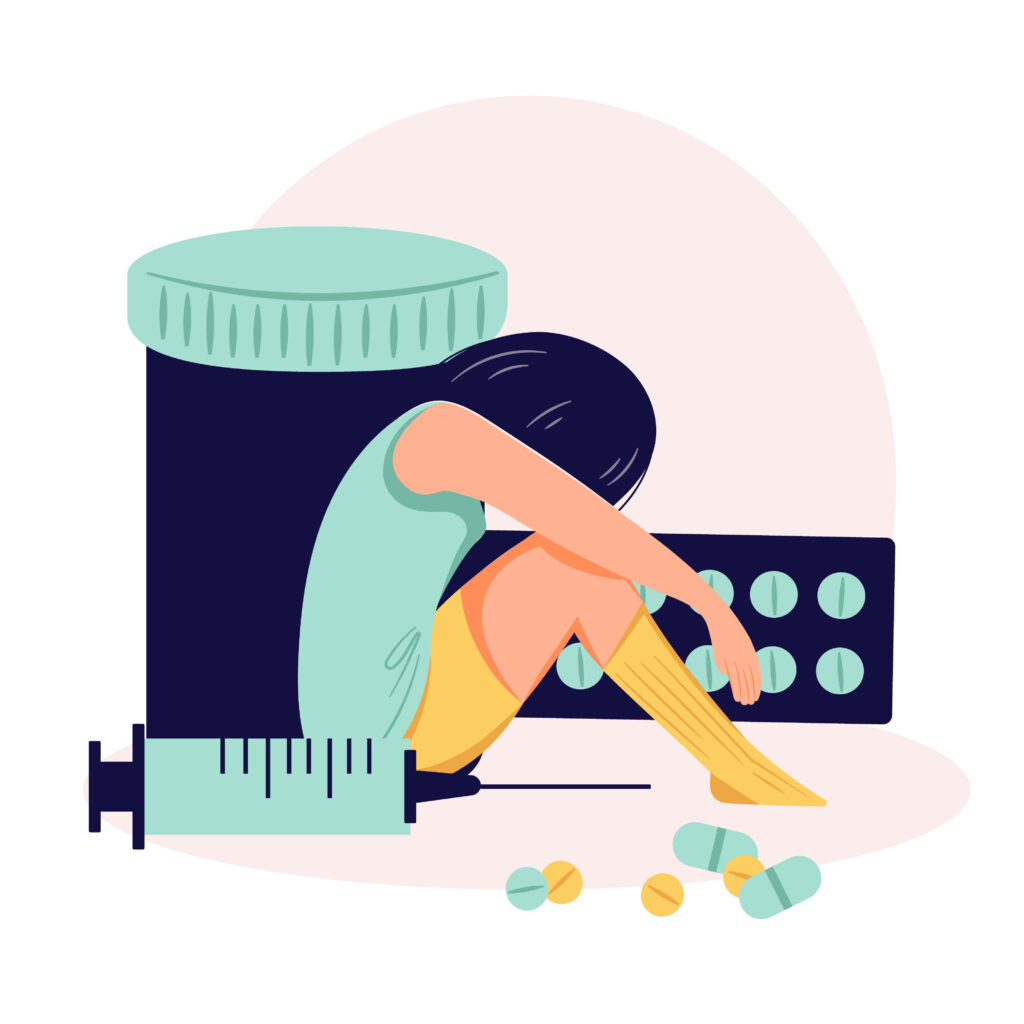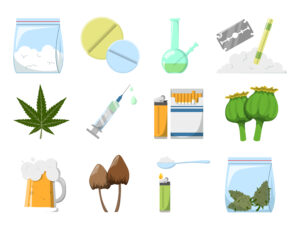Drugs, Addiction and Getting Help

Some young people experiment with drugs. It could be because you want to know what it feels like, you want to fit in, or because of peer pressure. Meic isn’t here to judge you. We want to ensure you have the information you need about the risks so that you can make informed choices. We’ll also tell you where to get help if it becomes problematic.
What are recreational drugs?
Recreational drugs are substances you put in your body to change how you feel. There are lots of different drugs (see list here), but some common ones that can be addictive are marijuana, cocaine, ketamine, heroin, and methamphetamine. There are also legal drugs like alcohol and tobacco that can be addictive.
Drugs can be taken in different ways, like swallowing, inhaling, snorting, injecting, or absorbing through the skin. The drug travels through your bloodstream, ending up in the brain, changing how it behaves.
Some people use drugs to:
– Feel happy
– Relax
– Get excited
– Be more sociable
– Numb their feelings
– Forget about things
– Help them cope
Drugs can change the way you act, how you look physically, and how you feel. It can cause mood swings and make you lose interest in things.
If you want to understand more about how drugs work and their effects, visit Dan 24/7.
Why are drugs addictive?
Addiction can start when you try a drug out of curiosity, and if you like how it makes you feel, you might use it repeatedly. Your body gets used to the drug, so you might need more to feel the same way or move on to stronger drugs to get that same high.
If you become addicted, not having that drug can make you feel terrible. Withdrawal symptoms include shaking, feeling sick, sweating, muscle pain, mood swings (e.g. anger or sadness), and seizures (fits).
Getting help
The first step to recovering is admitting that you have a problem. You could try talking to someone you can trust, like a family member, friend, or teacher. You can also call Dan 24/7, a Drug and Alcohol Helpline in Wales (0808 808 2234), which provides help and advice 24/7.
The NHS can offer addiction support. Make an appointment to talk to your doctor, who may be able to put you in touch with services and treatments that can help.
Join a free support group like Narcotics Anonymous. Listen and talk to other people recovering from drug addiction. There’s no pressure to say anything at a meeting, and you don’t have to be clean to attend; you need to want to stop and be willing to change. Find your nearest meeting here.
Things to avoid to help you recover:
– Stress – try practising self-care and mindfulness
– People and places that are linked to your drug use – this could be triggering
– Negative emotions – write your feelings down, or talk about them with someone you trust or with a counsellor
If you need to talk about addiction, you’re worried about a friend, or if there’s anything else worrying you, you can contact the Meic helpline anonymously and for free between 8am and midnight every day.





















